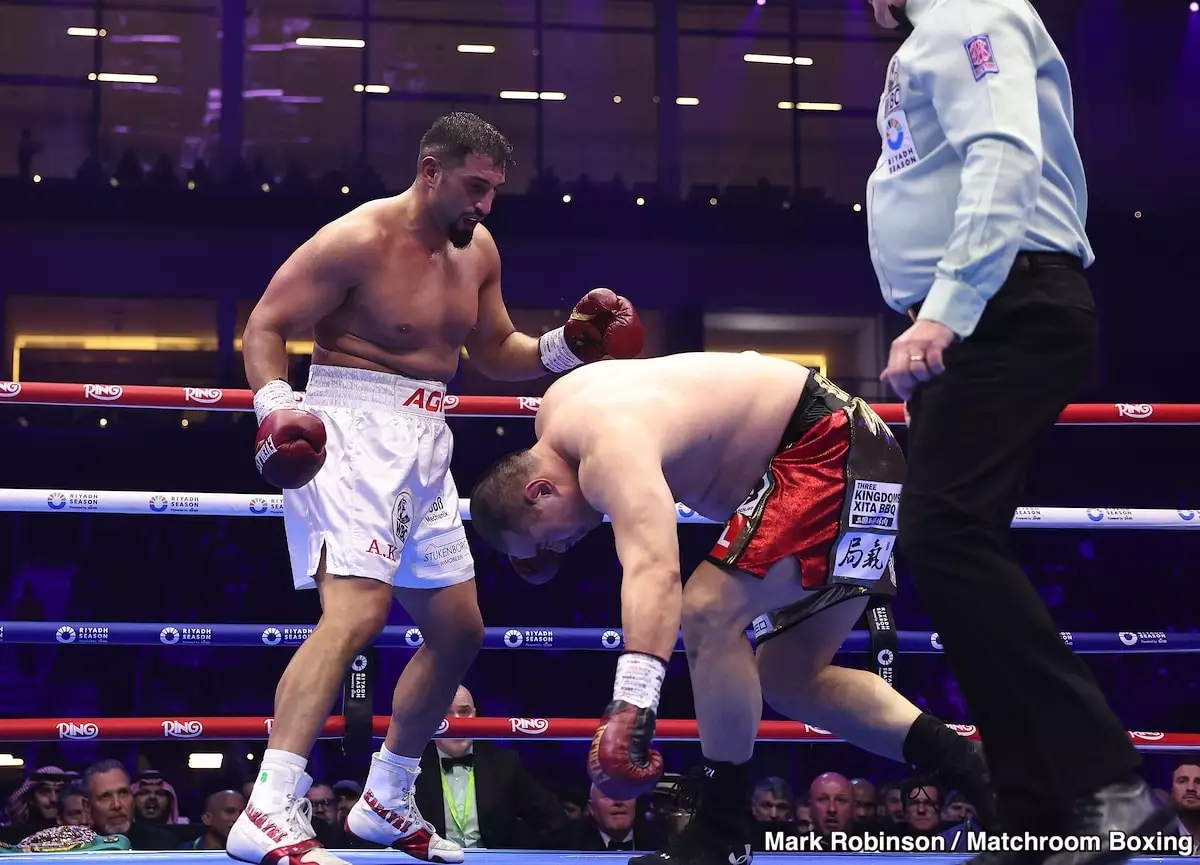Agit Kabayel is forging a path that is garnering attention in the heavyweight boxing division, and rightfully so. Current rankings may be dominated by household names like Anthony Joshua and Deontay Wilder, but Kabayel, with his exceptional fighting spirit and impressive skillset, is making a compelling case for his place among the elite. His recent victory over Zhilei Zhang, which earned him the WBC interim heavyweight championship title, showcases not only his talent but also his refusal to be complacent. Kabayel’s record of 26 wins, with a knockout count of 18, demonstrates his capability in the ring, blending technical precision with a fierce offensive style—a rarity in today’s landscape where many fighters opt for safety over spectacle.
Kabayel embodies the essence of an ‘old school’ fighter, someone who welcomes challenges rather than shies away from them. In an age where many contenders manipulate their careers to avoid risks, Kabayel demonstrates a commendable desire to constantly test his mettle, making him a refreshing figure in modern boxing. His willingness to face anyone, anywhere, speaks volumes about his confidence and ambition.
Challenging the Best: Aspirations for Big Fights
With his championship status secured, Kabayel is not content to simply bask in his recent victory. Instead, he aims for the grandest stages possible. By expressing interest in potential bouts with heavyweight giants like Anthony Joshua and perhaps even a rematch with Wilder, Kabayel is not merely chasing fame; he is strategically aligning himself with the titans of the sport to measure his own abilities. According to Kabayel, fighting Joshua would not only be thrilling but also — on a personal level — a benchmark for his career. “Does it make sense for us to fight Joshua? Yes, for me it will definitely be fun to box against AJ,” he expressed. This sentiment speaks to the competitive nature that drives top athletes and the desire to face the best in order to validate one’s standing.
However, the reality of negotiations can temper such desires. Joshua’s recent injury and Wilder’s focus on other potential bouts could mean that Kabayel may have to contend with other fighters while waiting for a shot at a title or a high-profile matchup. Yet, it is this very ambition of seeking big-name opponents that sets him apart from others who may choose to take safer routes to maintain their records.
A New Era of Heavyweight Competitors
Kabayel’s rise comes at a time when the heavyweight division is undergoing a significant transformation. Names like Oleksandr Usyk and Tyson Fury have established themselves as champions with impressive legacies, but there is an influx of younger fighters—a new generation of competitors eager to prove their worth. This makes Kabayel’s journey even more crucial, as he navigates through a ring filled with not only established stars but also promising contenders ready to carve their paths in the sport.
He may have previously fought the likes of Derek Chisora, where he appeared less dominant, but his evolution as a fighter is evident. Kabayel’s body punching prowess has been hailed as some of the best in the heavyweight division, and his recent performances suggest that he is far from the tedious decision winner he was a few years ago. Every punch thrown now is a reminder of the fighter he has become—the dangerous contender who has the potential to dethrone champions.
The Stakeholders in Kabayel’s Future
With each victory, Kabayel is not just earning respect; he is providing a voice for the fair distribution of opportunities in the heavyweight landscape. His candidness regarding who he wants to fight reflects a broader conversation about ensuring that deserving fighters get their rightful chances. Kabayel, along with other potential challengers like Joe Parker and Daniel Dubois, represents the future of heavyweight boxing. If Usyk continues to hold the title, the boxing community will be compelled to recognize Kabayel as a legitimate contender.
In a sport often riddled with politics, he stands as an example of what it means to earn one’s place through grit and determination. His aspirations signal that heavyweight boxing is not just ruled by the existing champions, but may also be shaped by the fervor of emerging talent driven by the desire for greatness.

